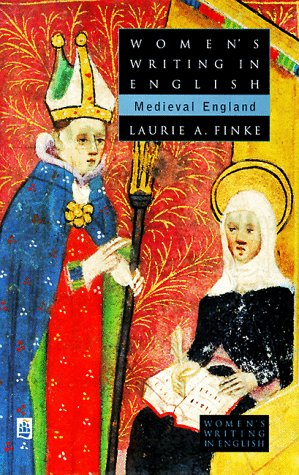Women's Writing In English
1 total work
Taking as its guiding emblem Christine de Pizan's metaphor of a city of ladies, this volume refuses to treat the medieval woman writer as an anomaly, a lone genius who somehow managed to transcend the limitations of her sex. It insists that women have always participated fully, if not equally, with men in the creation of culture, even during the Middle Ages and it examines the record of women's cultural participation in medieval England. The very novelty of this idea suggests that the recovery of women's writing should precipitate a thorough revision of the assumptions on which the traditional literary canon and most of our literary history were built. The book weaves together a survey of medieval women's writing in English with an analysis of the theoretical issues at stake in their recovery, demonstrating that a closer attention to the texture of women's lives and literacies illuminates the collective nature of women's writing and its dialogic relations with the dominant culture. Laurie A. Finke challenges medieval historians to consider how a better understanding of women's lives and intellectual interests will alter traditional understandings of this period; at the same time she challenges feminist literary theorists to consider the ways in which medieval literature calls into question the notion of authorship upon which modern literary criticism, and with it feminist criticism, has depended.
Women's Writing in English: Medieval England examines women's writing not only in traditional genres such as poetry, drama, and romance but in a variety of genres which are often excluded from literary canons including medical treatises, correspondence, and the visionary and devotional genres in which women wrote most prolifically. Major writers examined include Julian of Norwich, Margery Kempe, and the Paston women. In addition, the author examines the influence on English literary history of major continental writers such as Marie de France and Christine de Pizan.
Women's Writing in English: Medieval England examines women's writing not only in traditional genres such as poetry, drama, and romance but in a variety of genres which are often excluded from literary canons including medical treatises, correspondence, and the visionary and devotional genres in which women wrote most prolifically. Major writers examined include Julian of Norwich, Margery Kempe, and the Paston women. In addition, the author examines the influence on English literary history of major continental writers such as Marie de France and Christine de Pizan.
